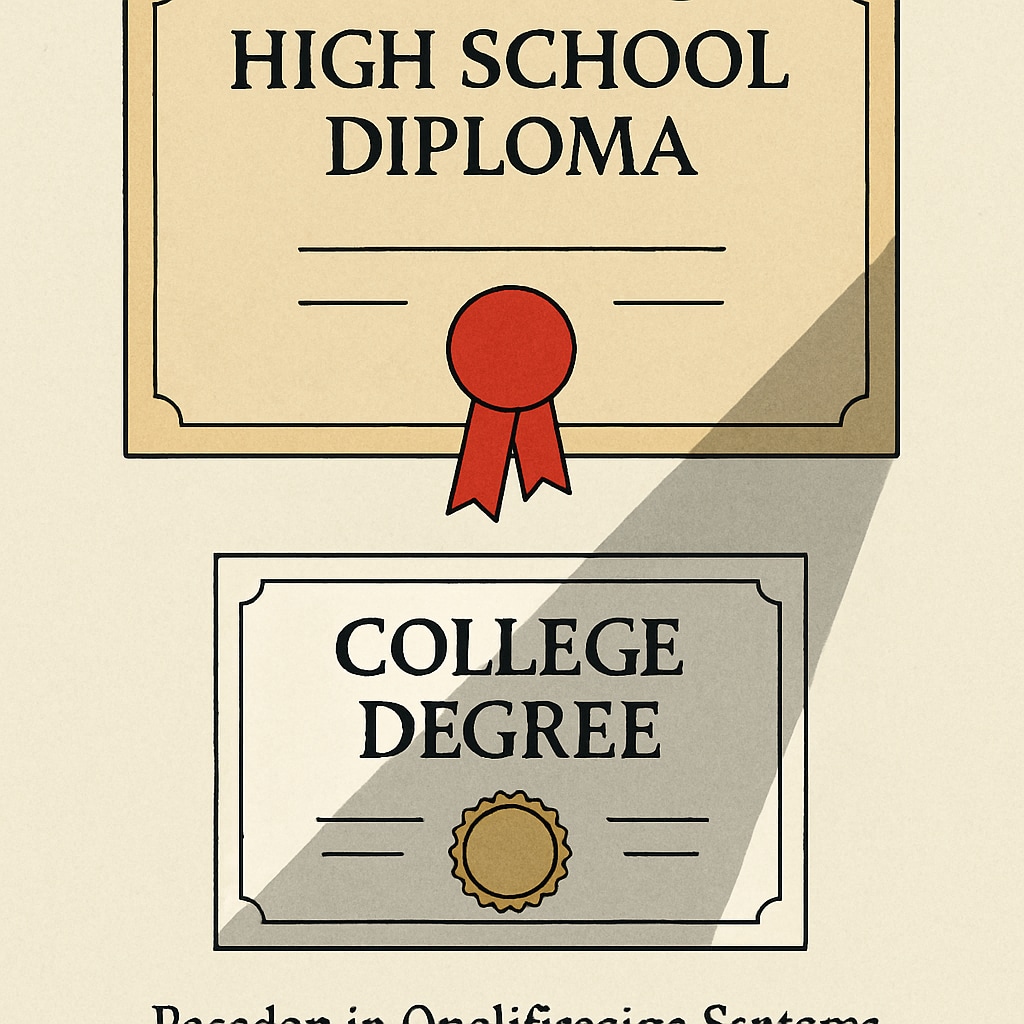Arizona’s government job requirements have sparked a debate about “education requirements, employment discrimination, and qualification systems.” In an ironic twist, applicants with multiple college degrees are being rejected for not meeting the mandatory prerequisite of holding a high school diploma. This scenario shines a light on systemic rigidity, the imbalance in evaluating educational credentials, and the broader societal perception of K-12 education.
Can High School Diplomas Outweigh College Degrees?
At first glance, Arizona’s hiring policy may seem like a bureaucratic error. However, it reflects deeper systemic flaws in how educational qualifications are assessed. For many roles, a high school diploma is listed as a “minimum requirement,” regardless of whether an applicant’s higher academic achievements inherently surpass this threshold. The policy’s rigidity fails to accommodate non-linear educational journeys, including those who pursue GED equivalents or international degrees.
For example, an applicant with a master’s degree in public administration might be disqualified simply because they lack a high school diploma. This creates an absurd scenario where advanced education is rendered meaningless against a lower-level qualification.

Systemic Rigidity and Its Consequences
The insistence on high school diplomas highlights the inflexibility of bureaucratic systems. Such policies often fail to account for real-world complexities, including diverse educational pathways. In addition, they inadvertently promote an outdated view of education as a linear process, ignoring the possibility of individuals acquiring advanced knowledge through alternative routes.
As a result, these policies can lead to employment discrimination, where capable candidates are excluded based on arbitrary criteria. This raises questions about fairness in hiring practices and whether such requirements truly align with the demands of modern job markets.
Other states and organizations might face similar challenges. According to the Education in the United States entry on Wikipedia, the U.S. education system is diverse, with varying standards across states. Combining this diversity with rigid hiring policies creates room for systemic inefficiencies.
Rethinking the Value of K-12 Education
Arizona’s policy also forces a reevaluation of the role and value of K-12 education. While high school diplomas remain an important milestone, their value as a sole determinant for employment eligibility is questionable. The policy seems to elevate the symbolic worth of a high school diploma above the practical knowledge and skills gained through higher education.
In addition, this approach undermines individuals who have taken alternative educational routes, such as homeschooling or GED programs. Rigid requirements may discourage innovation in education systems, stalling efforts to modernize and diversify learning opportunities.

Moving Toward Fairer Employment Policies
To address this paradox, Arizona and other states must revisit how educational qualifications are defined and assessed. Potential solutions include:
- Allowing higher education credentials to supersede lower-level qualifications.
- Introducing flexibility for non-traditional educational backgrounds, such as international degrees and alternative certifications.
- Reevaluating job descriptions to align with actual skill requirements rather than symbolic qualifications.
In addition, employers should focus on skills-based hiring practices. For example, a public administration role might prioritize budgeting skills, leadership, and communication over a high school diploma. Shifting to a competency-based model can reduce the risk of excluding qualified candidates for arbitrary reasons.
According to Britannica’s article on education, the purpose of education is to prepare individuals for life and work. Employment policies should reflect this purpose by emphasizing practical skills and knowledge rather than formalities.
Conclusion: A Call for Reform
Arizona’s current job policy exposes the pitfalls of rigid qualification systems. When college degrees fail to meet the “minimum requirement” of a high school diploma, it becomes clear that the system needs reform. Policymakers must prioritize flexibility, fairness, and alignment with modern workforce needs to address employment discrimination and restore balance to education evaluation.
As the debate continues, Arizona’s paradox serves as a reminder that education systems must evolve to meet the realities of diverse learning paths and career trajectories.
Readability guidance: This article uses concise paragraphs, clear transitions, and a mix of narrative and lists to improve readability. Images are placed strategically to enhance understanding and engagement.


